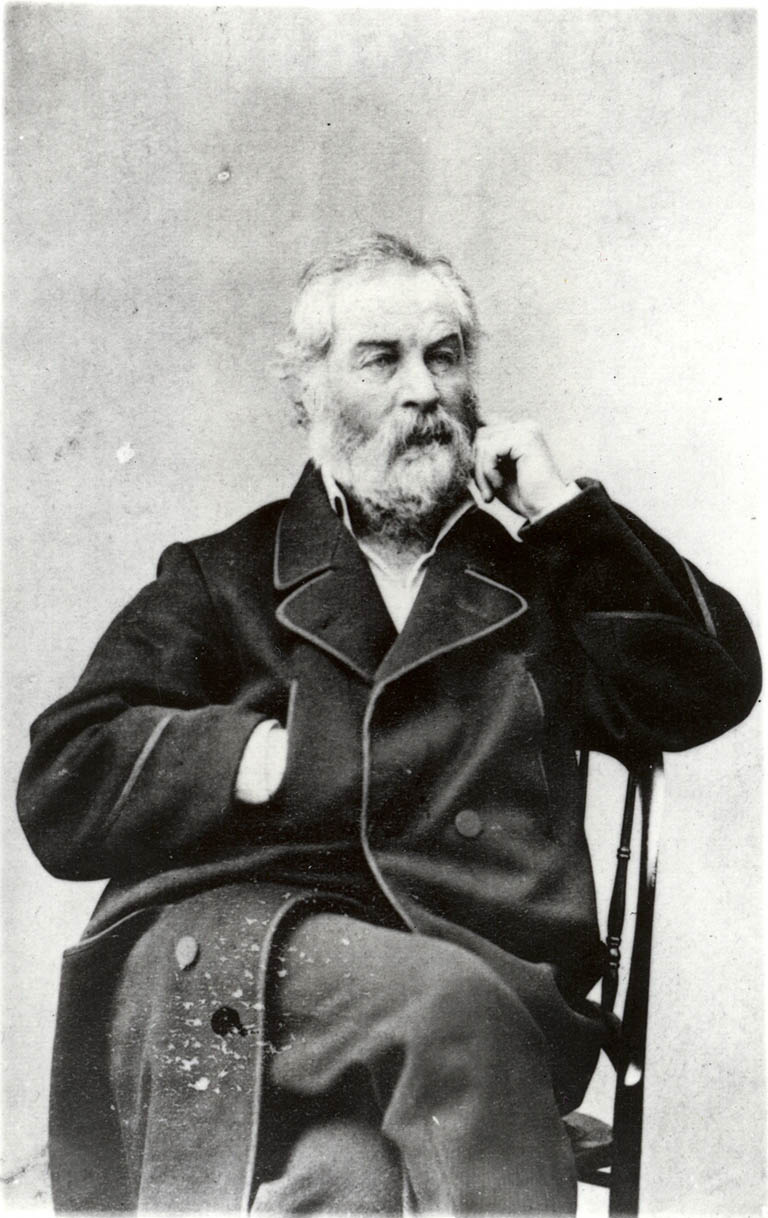Foreword
In this section, a child asks the question that will generate the rest of the poem: “What is the grass?” The answer to this question will in some ways occupy the poet through all the rest of the sections, leading him eventually to entitle his entire book Leaves of Grass. As is often the case with children’s questions, there is no easy answer to this one. And the poet, instead of offering a categorical reply (he is done with the lecturing and accounting and the talk of beginnings and endings), responds instead by offering guesses, shifting answers, for he realizes that, the more we think about what the grass truly is, the less we know. Maybe, in the way it manages to grow everywhere out of the soil (which is always composted death), the grass is the “flag of my disposition,” the very sign of the poet’s optimism. Or maybe it’s the very sign of God, a coy reminder of the mystery of creation, dropped everywhere for us to wonder whose it is (like a woman dropping a monogrammed handkerchief in the hope that it will be picked up by a possible lover and will lead him back to her).
The grass is itself a child, always emerging anew from the realm of death into a new life; it is a kind of coded writing that seems to speak equality since it grows among the rich and poor, among black and white. But it is primarily the sign of life emerging from death, and the poet imagines himself walking over graves and imagining the grass as the transformed life of those buried beneath him. His imagery here is delicate, precise, and a bit macabre: “This grass is very dark to . . . come from under the faint red roofs of mouths.” Just as, in the previous section, the tongue plunged to the heart, here the grass grows from the mouths of the dead, as if it is “so many uttering tongues.” The tongue is the organ of voice, and Whitman hears tongues speaking everywhere he looks.
Whitman here begins his exploration of how the dead are not silent, are not voiceless, but rather how they are always speaking through the life that emerges from them. If we want to know what the dead are saying, we need only “translate the hints” of those “uttering tongues” of grass. The dead speak in “a uniform hieroglyphic,” a coded language that requires us to listen hard, to be fearless in our translation, in order to ultimately realize that “the smallest sprout shows there is really no death.” The grass always speaks life and always emerges from death, so death always ceases the moment new life appears. Again, this is Whitman’s faith in compost, in the cycle of death and life that guarantees that death is never an ending but always a beginning of ongoing life, which is forever moving “onward and outward,” making death far different than we might have supposed, not an ending but an ongoing process of dissolving again into diffuse and ever-leafing life. How lucky can we be to exist in a universe where death is only a harmless word we give to a passing moment in our ever-recycling life?
EF
see and remark, and say Whose?
- Foreword to Section 6
- Song of Myself, Section 6 —read by Eric Forsythe
- Afterword to Section 6
Afterword
If poetry is a matter of hints and guesses—of translating hints from the imagination or memory and guesses about what lies before and beyond us—then the sixth section of this poem is a primer on the art. A child’s question generates speculation, some of Whitman’s most gorgeous phrases (“the flag of my disposition,” “the handkerchief of the Lord,” “the beautiful uncut hair of the graves”), and an invitation to journey to the heart of existence—which, as it turns out, is hidden in the grass beneath our feet. Whitman claims to wish that he could “translate the hints about the dead young men and women”—and then he performs that very act of alchemy, discovering in the “smallest sprout” the philosopher’s stone, concluding that the base materials of life are immortal. He summons from the grass evidence that no one and nothing will ever die, since every atom (belonging to you as well as to me) circulates forever. Scientists may yet prove him to be right.
“Hints followed by guesses,” T. S. Eliot wrote in his version of scripture, Four Quartets; “and the rest is prayer, observance, discipline, thought and action.” Whitman took another view, believing that eternity lay all around him— in the lull; in the smoke of his breath; in a handful of grass; in the question that begs an answer, and then another and another; in the stars that travel “onward and outward,” presumably forever. What a thrilling prospect. And terrifying.
CM
Question
In this section, Whitman invites us to play along with him as he guesses at possible answers to the child’s seemingly simple question, “What is the grass?” What other answers would you offer to supplement or challenge the ones Whitman gives?

